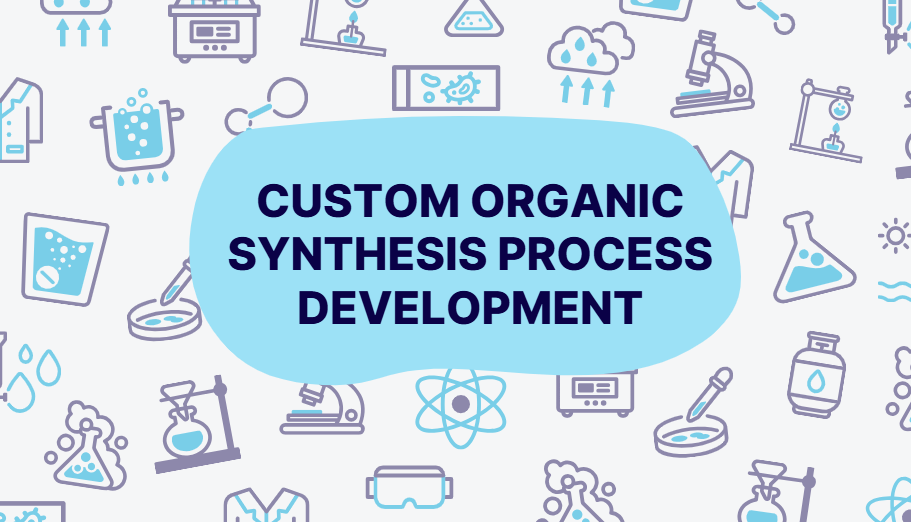Polymers, the cornerstone of modern materials science, are categorized into two fundamental types based on their affinity for water: hydrophilic and hydrophobic polymers. Hydrophilic polymers interact favorably with water, while hydrophobic polymers repel it. This distinction enables their tailored use in diverse applications, from drug delivery systems and coatings to water purification and packaging. Custom polymer synthesis allows scientists to design and optimize these polymers for specific functionalities, unlocking their potential in innovative industries.
This blog explores the properties, synthesis techniques, and applications of hydrophilic and hydrophobic polymers, emphasizing the transformative role of custom polymer synthesis.
1. Understanding Hydrophilic and Hydrophobic Polymers
a. Hydrophilic Polymers
Hydrophilic polymers have polar functional groups such as hydroxyl (-OH), carboxyl (-COOH), and amine (-NH2) that form hydrogen bonds with water molecules. This interaction makes them water-soluble or capable of swelling in aqueous environments.
Examples:
- Polyethylene glycol (PEG): Widely used in biomedicine and pharmaceuticals.
- Polyvinyl alcohol (PVA): Commonly employed in adhesives and films.
- Hyaluronic acid: A natural polymer used in cosmetics and tissue engineering.
Key Properties:
- High water absorption or solubility.
- Biocompatibility, often used in medical applications.
- Ability to form hydrogels.
b. Hydrophobic Polymers
Hydrophobic polymers are nonpolar, resisting interaction with water due to their lack of functional groups that can form hydrogen bonds. These polymers excel in creating water-resistant barriers and encapsulating hydrophobic substances.
Examples:
- Polystyrene (PS): Used in insulation and packaging.
- Polytetrafluoroethylene (PTFE): Known for its nonstick properties in cookware.
- Polypropylene (PP): Utilized in automotive and textile industries.
Key Properties:
- Low water absorption or permeability.
- Chemical resistance and durability.
- Excellent barrier properties.
2. The Need for Custom Polymer Synthesis
Custom polymer synthesis bridges the gap between general-purpose materials and specialized applications. By tailoring molecular structure, chain length, or functional groups, scientists can achieve polymers with precise characteristics for specific uses.
Advantages:
- Performance Optimization: Adjusting properties like hydrophilicity, hydrophobicity, and thermal stability.
- Functionality Enhancement: Adding features such as stimuli responsiveness or biodegradability.
- Application-Specific Design: Ensuring polymers meet the exact needs of the intended industry.
3. Synthesis Techniques for Hydrophilic and Hydrophobic Polymers
a. Hydrophilic Polymers
i. Free Radical Polymerization
- Used to synthesize water-soluble polymers like polyacrylamide or poly(acrylic acid).
- Enables control over molecular weight and chain length.
ii. Graft Polymerization
- Attaches hydrophilic chains onto a hydrophobic backbone, improving water interaction while maintaining mechanical strength.
iii. Ring-Opening Polymerization (ROP)
- Common for biodegradable hydrophilic polymers like polylactic acid (PLA) or polyglycolic acid (PGA).
b. Hydrophobic Polymers
i. Solution Polymerization
- Ensures the solubility of hydrophobic monomers during synthesis. Example: Polystyrene production.
ii. Emulsion Polymerization
- Produces hydrophobic latex particles in water. Used in paints and adhesives.
iii. Controlled Radical Polymerization (ATRP/RAFT)
- Facilitates precision in hydrophobic block synthesis for amphiphilic copolymers.
4. Applications of Hydrophilic and Hydrophobic Polymers
a. Biomedical Applications
- Hydrophilic Polymers:
- Drug carriers (e.g., PEGylated nanoparticles).
- Wound dressings (hydrogels).
- Contact lenses (PVA-based).
- Hydrophobic Polymers:
- Long-term implants due to their chemical stability.
- Encapsulation of hydrophobic drugs for controlled release.
b. Water Treatment
- Hydrophilic Polymers: Superabsorbent polymers for water purification.
- Hydrophobic Polymers: Membranes for oil-water separation.
c. Packaging Industry
- Hydrophilic Polymers: Edible or biodegradable films for eco-friendly packaging.
- Hydrophobic Polymers: Moisture-resistant layers for long-term storage.
d. Smart Materials
Combining hydrophilic and hydrophobic polymers through custom synthesis creates amphiphilic polymers, enabling advanced applications like self-healing materials and stimuli-responsive surfaces.
5. Challenges in Custom Polymer Synthesis
- Compatibility: Achieving homogeneity between hydrophilic and hydrophobic domains in hybrid systems.
- Scalability: Replicating lab-scale synthesis on an industrial level.
- Biocompatibility: Ensuring safety for medical and food-grade applications.
6. Case Study: Hydrophilic-Hydrophobic Balance in Drug Delivery
Drug delivery systems often require amphiphilic polymers that integrate both hydrophilic and hydrophobic characteristics. Custom synthesis allows the creation of copolymers such as PEG-b-PLA, which self-assemble into micelles:
- Hydrophobic Core: Encapsulates poorly soluble drugs.
- Hydrophilic Shell: Enhances solubility and circulation time.
This approach improves drug bioavailability and reduces side effects, demonstrating the transformative potential of tailored polymers in healthcare.
7. Future Prospects
The demand for custom polymer synthesis is poised to grow, driven by advancements in biotechnology, nanotechnology, and sustainability efforts. Emerging technologies such as 3D printing and AI-driven material design are expected to further refine polymer customization.
Services Offered by ResolveMass Laboratories
At ResolveMass Laboratories, we provide cutting-edge solutions in custom polymer synthesis to meet diverse industry needs:
- Hydrophilic Polymer Synthesis: High-performance hydrogels and water-soluble polymers.
- Hydrophobic Polymer Development: Robust materials for packaging, coatings, and industrial applications.
- Hybrid Polymers: Amphiphilic systems for advanced applications like drug delivery and smart materials.
Explore our comprehensive range of services here:
Contact Us
Partner with ResolveMass Laboratories for all your custom polymer synthesis needs.
Let us design the perfect polymer for your next breakthrough!

